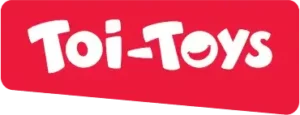Why do I need EPR in Germany?
EPR in Germany is key to ensuring that manufacturers and retailers, including e-commerce sellers targeting the German market, take responsibility for the environmental impacts of their products. In Germany, EPR applies to all sellers who manufacture, import, or distribute products, with particular focus on packaging, electrical and electronic equipment, and batteries.
EPR thresholds in Germany
In Germany, EPR applies from the first piece of packaging or product sold, meaning there are no de minimis exemptions or thresholds, a critical update enforced since July 2022. Any amount of packaging, electronic equipment, or batteries put on the market triggers EPR obligations if you’re the first to place it on the German market.
How does the EPR process work in Germany?
Producers must join a compliance scheme and pay fees based on the type and volume of products they sell. These fees contribute to the costs of collecting, sorting, recycling, and disposing of products at the end of their life cycle.
What do you need to be EPR compliant in Germany?
Sellers need to be registered with the appropriate compliance schemes and regulatory agencies for the types of products they sell, ensuring EPR compliance.
For example: If you sell products in Germany, you most likely need a VerpackG registration. For this, you’ll need to register with LUCID. On top of that, you need to register with a take-back system as well, such as Reclay. When it’s time, you can file your report and pay your recycling costs to LUCID.
German EPR Regulations
There are three EPR categories in Germany, which we will explain below. Which one(s) you need to sign up for, depends on the type of product(s) you sell, and each type may have a unique EPR number or registration number.
VerpackG: the German Packaging Act
VerpackG aims to increase recycling rates for packaging materials. Register via the LUCID Packaging Registry and contract with a licensed dual system for the collection and recycling of your packaging material. Ultimately, the goal is to create an incentive to choose for climate neutral/environmentally responsible packaging. This will be the standard in the future for the whole EU.
Almost every vendor in Germany needs a VerpackG registration as part of their extended producer responsibility. Namely, if you sell products that come with packaging, such as a bottle of lotion. The boxes you ship your products in, also count towards extended producer responsibility and may need to be registered on the lucid packaging register.
ElektroG/WEEE: Electrical Appliances
For electronic and electrical equipment, adherence to the ElektroG (WEEE in Germany) is mandatory. Register your product types, such as toasters or computers, with the EAR Foundation’s national register to ensure proper disposal and recycling, aligning with epr registration needs. Registration is done per brand name and product categories. This process includes meeting the system participation requirement for electronic goods sold in the marketplace.
You need an ElektroG registration if you sell any type of electronic goods, such as smartphones or laptops, confirming your epr compliance. This includes ensuring system participation and lucid registration for sales packaging. A good rule of thumb: if a product can be charged, it falls into this category.
BattG
Under the BattG, sellers must ensure that batteries, such as those sold with remote controls (or those embedded in electronic products), are properly taken back and recycled. Registrations must be made through the BattG-Melderegister of the Federal Environment Agency, or Stiftung EAR, ensuring compliance with the central agency packaging register.
This one speaks for itself: If your products include batteries or if you manufacture batteries, such as battery packs for electronic devices or remote controls, then you need to register for BattG. Important to note: you only need this registration if you sell the product with the battery included. This is a crucial part of system participation under the EPR framework. If you sell, for example, the remote without any batteries, you do not need it.
EPR filings in Germany
When to file
EPR filings are generally annual, but the frequency can vary. Meeting the specific deadlines for each product category is crucial for maintaining proof of compliance.
What to report in filing
For filings, you are required to report the type (material) and amount (kg) of packaging, the type and weight of electronic equipment, and/or the number and type of batteries you place on the market. This includes a lucid registration for tracking packaging quantities and ensuring system participation compliance. This includes a lucid registration for tracking packaging quantities and ensuring system participation compliance.
Where to file (LUCID, EAR, Melderegister)
Filing is done through the respective online platforms:
- Packaging: The Central Agency Packaging Register’s LUCID database at verpackungsregister.org.
- Electronic equipment: The Stiftung EAR’s online portal at stiftung-ear.de.
- Batteries: The BattG-Melderegister through the Federal Environment Agency’s portal at umweltbundesamt.de provides a registration number for compliance. Take note: the take-back system you register with, is legally responsible for reporting the recycling numbers to the government. But the producer, probably you, is obliged to report the numbers to the take-back scheme.
Summary of EPR Obligations
For good measure, below is a quick overview of the German EPR product categories and requirements such as registering with the relevant EPR registry.
| EPR Category | Applicable Products | Regulatory Requirement | Where to Register | Frequency of Filings | Potential Fines for Non-compliance |
|---|---|---|---|---|---|
| VerpackG (Packaging) | All products with packaging, e.g., a bottle of lotion, shipping boxes | Register and report the volume and type of packaging; contract with a licensed dual system for recycling | LUCID Packaging Register | Generally annual, but may vary | Up to €200,000 |
| ElektroG/WEEE | Electrical and electronic equipment, e.g., toasters, computers | Register and report the type and weight of electronic equipment; ensure proper disposal and recycling | Stiftung EAR | Generally annual, but may vary | Varies, significant fines possible |
| BattG (Batteries) | Products with batteries, e.g., remote controls with included batteries | Register and report the number and types of batteries; ensure proper take-back and recycling | BattG-Melderegister, Federal Environment Agency | Generally annual, but may vary | Varies, significant fines possible |
EPR fines in Germany
Fines for non-compliance in Germany are significant and are intended to encourage adherence to regulations, emphasizing the importance of epr registration. For example, not registering your packaging with the central agency packaging register (ZSVR) can lead to fines up to €200,000. Similarly, failure to comply with ElektroG and BattG regulations can also result in hefty fines and penalties.
By understanding and complying with Germany’s EPR obligations, e-commerce sellers can not only avoid fines but also improve their reputation among consumers who value sustainability. System participation and lucid registration are pivotal to this process.














